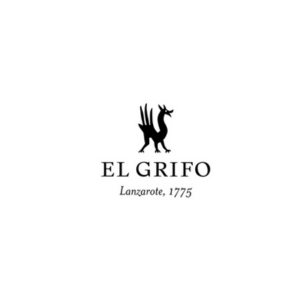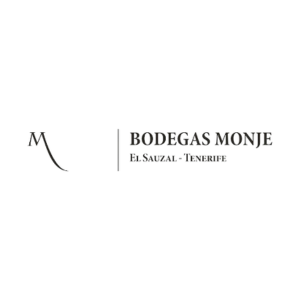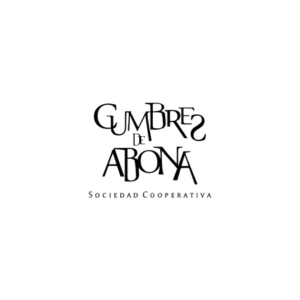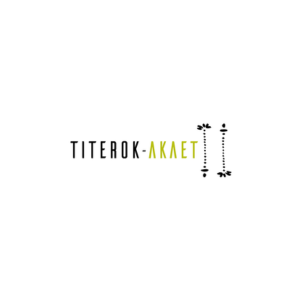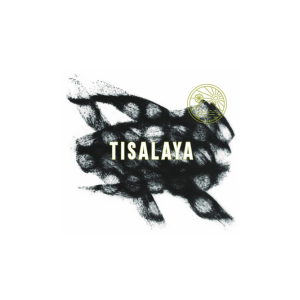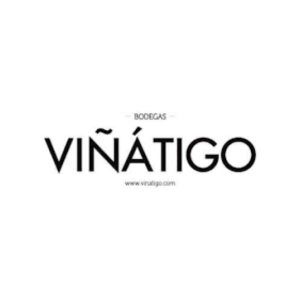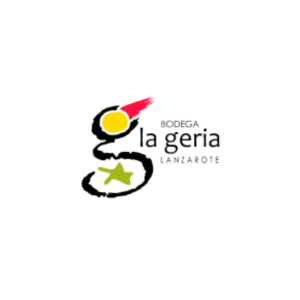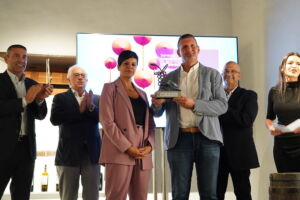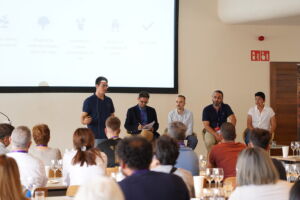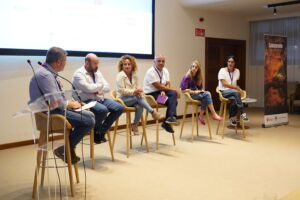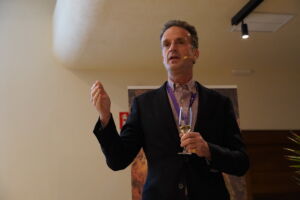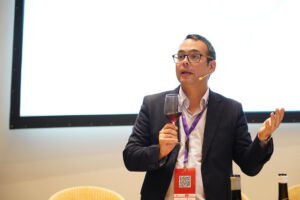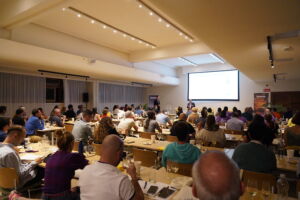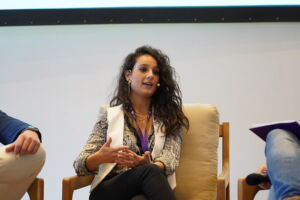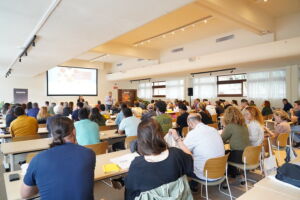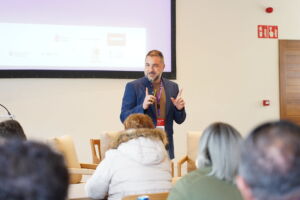II International Technical Conferences
Sustainable
Viticulture


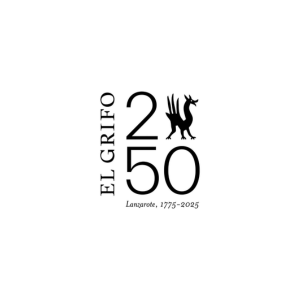







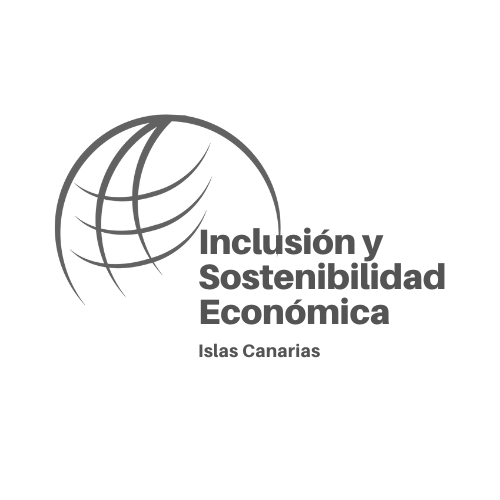
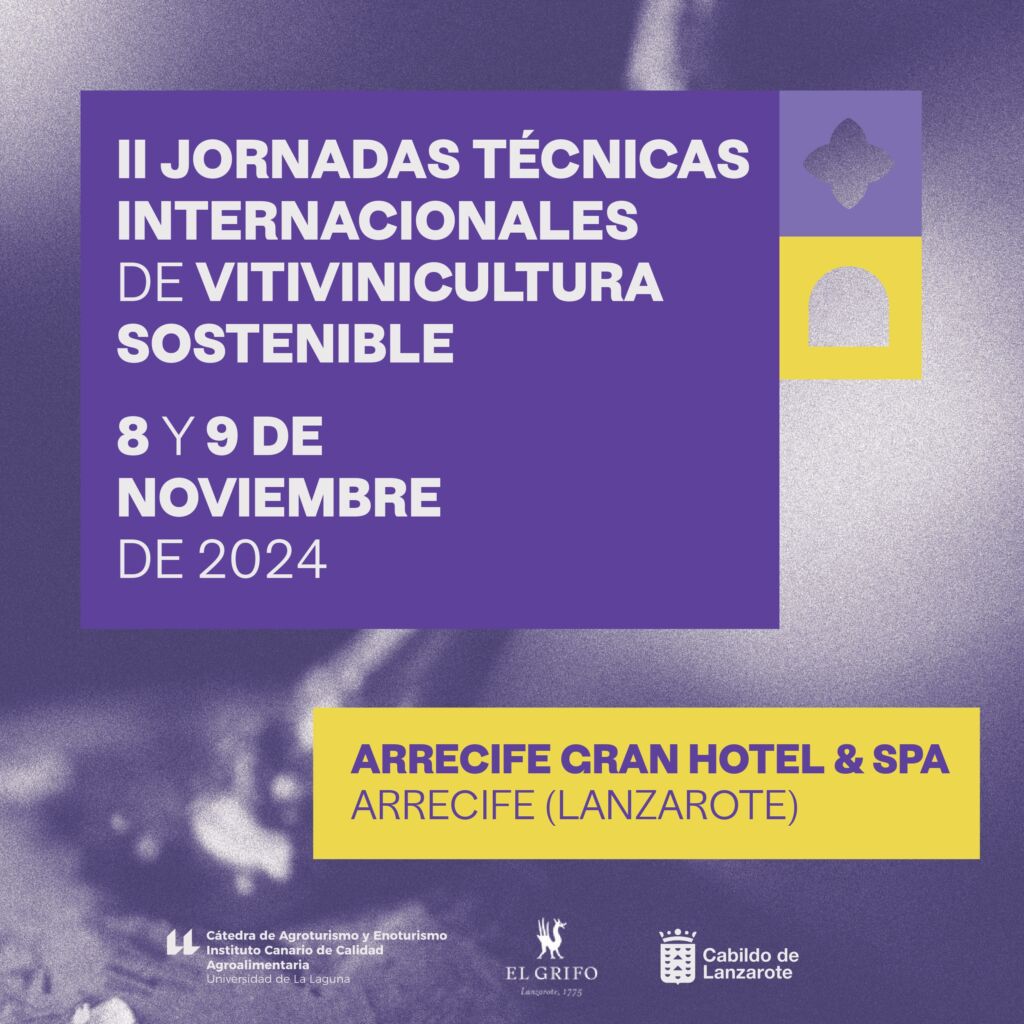
Climate change is causing temperatures to rise and decreasing precipitation in many regions of the world. In this regard, it is necessary to provide a comprehensive response to the challenges of water sustainability in each geographical area, and to highlight the key practices that are universally relevant in viticulture.
The Chair of Agrotourism and Wine Tourism of the Canary Islands at the Canary Institute of Agro-food Quality and the University of La Laguna, along with Bodegas El Grifo, will analyze the variability in regional resources and environmental conditions, particularly water management in viticulture, according to the characteristics of each location and its implications for vine physiology and the production of quality wines, during the upcoming International Technical Conferences on Sustainable Viticulture.
Everything in a uniquely global setting: the Island of Lanzarote.
The second edition of the International Technical Conference on Sustainable Viticulture has the institutional support of the Cabildo of Lanzarote. And the collaboration of the Art, Culture and Tourism Centres of the Cabildo of Lanzarote, CajaSiete, the Regulatory Council of the Protected Designation of Origin of Lanzarote Wines, the Wine Technological Platform (PTV), and the academic institutions of the Federal Institute of Education, Science and Technology of Rio Grande do Sul (IFRS) – Bento Gonçalves Campus, the Federal University of Pampa – Don Pedrito Campus and the entity of Inclusion and Economic Sustainability of the Canary Islands.
Registration (coming soon)
Includes: live online access to the program on 11/08/2024.
Includes: lunch, snacks, and coffee breaks included
Includes: lunch, snacks, and coffee breaks included.
Includes: Round trip island travel to Lanzarote, transfer from the airport to the venue of the event and vice versa as per the program, lunch, snacks, and coffee breaks included
Hoteles
To book accommodation during your stay at Lanzatote, please consult the list of hotels on this page.
With the code <<LANZA24>> a participant rate will be applied on the dates of the Conference (overnight stay from 8 to 9 November) in all the establishments listed. To take advantage of this offer, please contact Viajes Sabanda by e-mail at reservas@sabandaviajes.com or by telephone on 922 26 20 20 12.
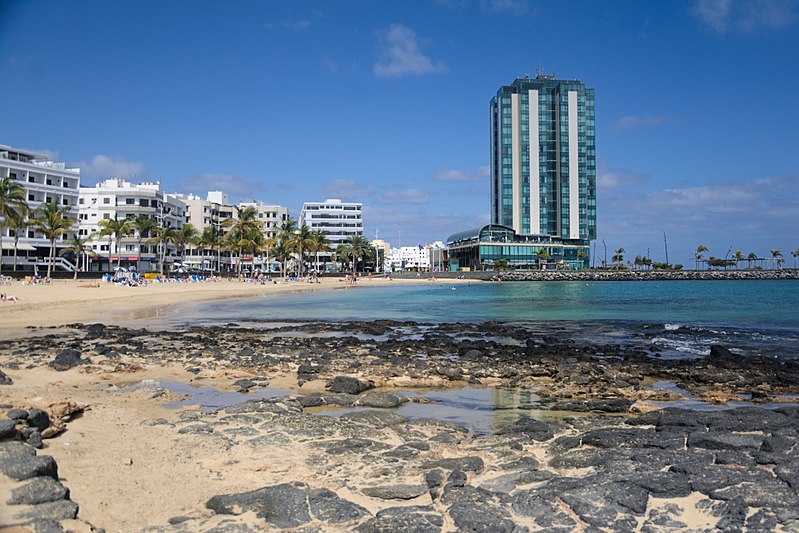
Parque Islas Canarias, s/n, Arrecife
Conference Venue
Airport distance: 8 min. (by car)
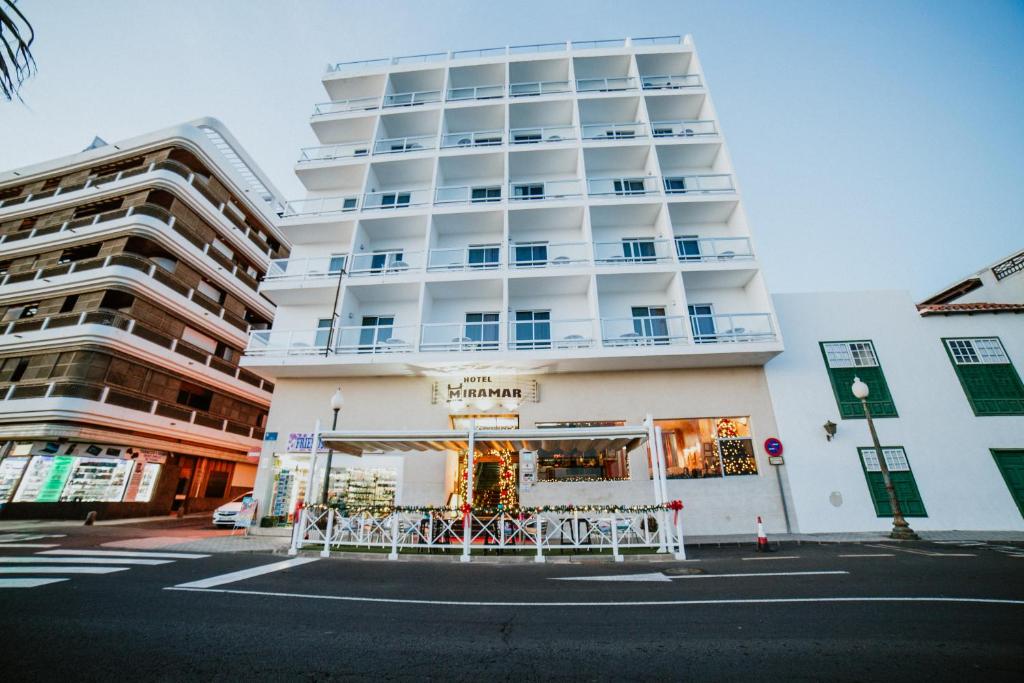
Avda. Coll, 2, Arrecife
Distance to the city centre: 10 min. (on foot)
Distance to airport: 9 min. (by car)
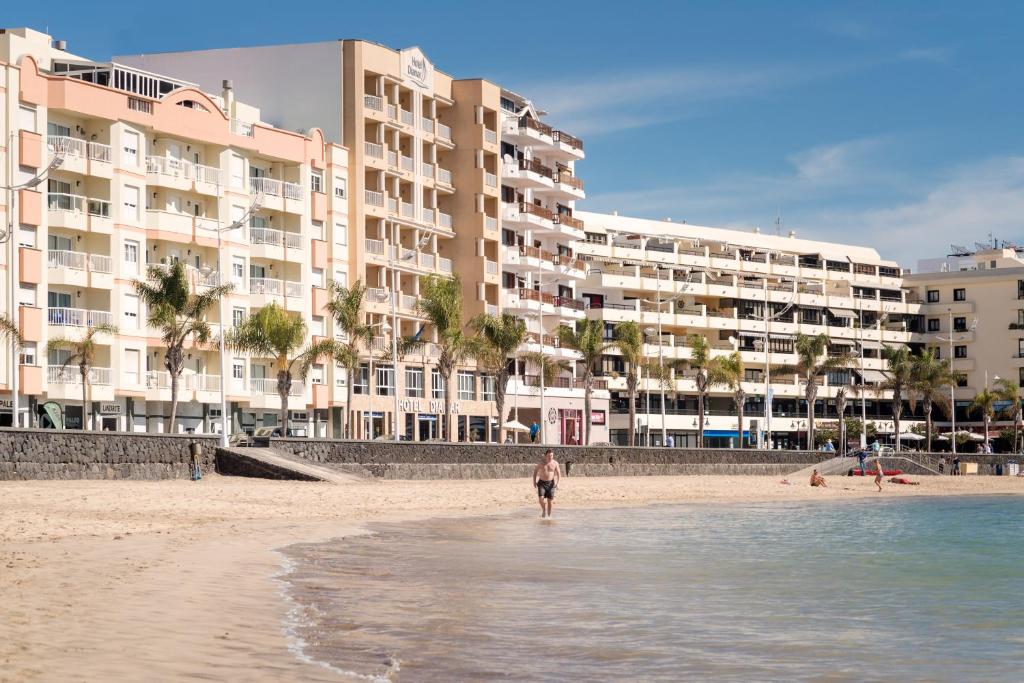
Avda. Fred Olsen nº 8, Arrecife
Distance to headquarters: 5 min. (on foot)
Distance to airport: 7 min. (by car)
Speakers
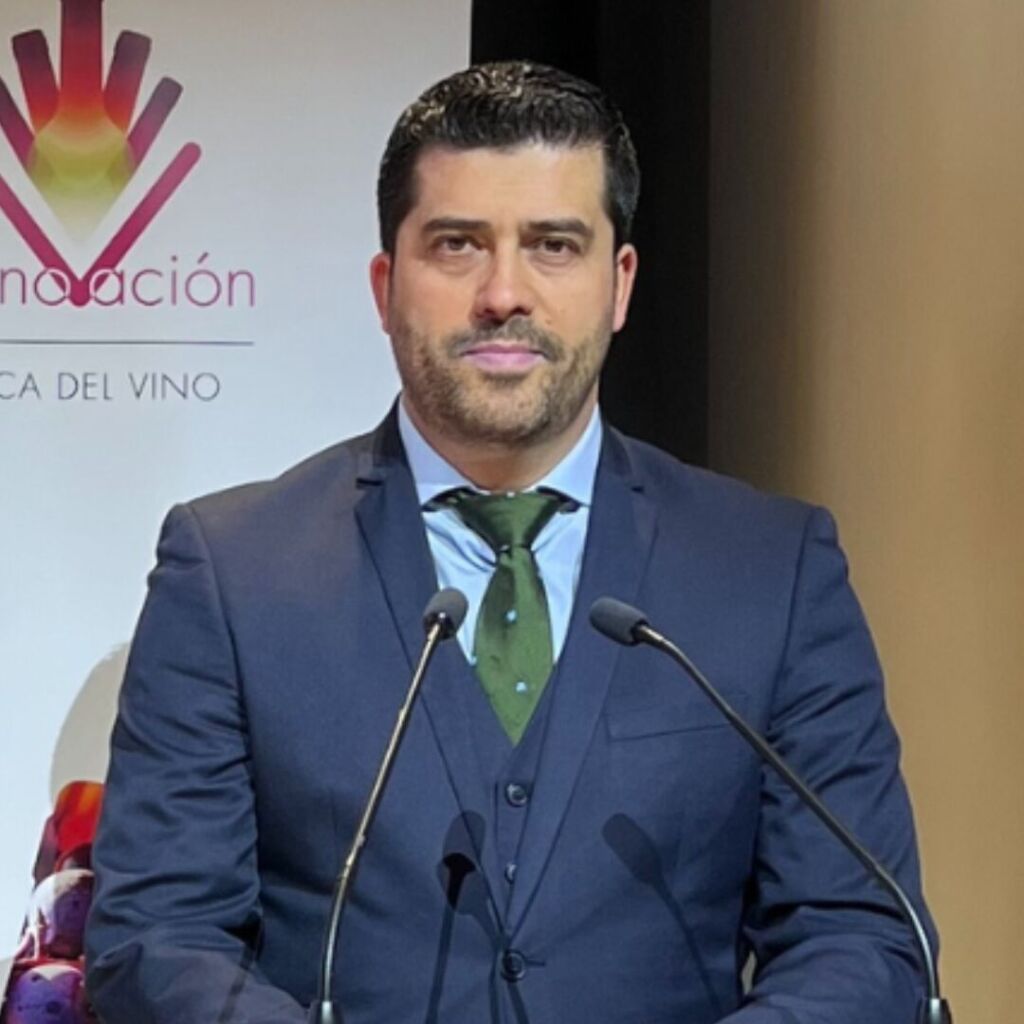
Mario de la Fuente Lloreda
Presidente de la Comisión de VITIVicultura de la OIV
Presidente de la Comisión de Viticultura de la Organización Internacional de la Viña y el Vino (OIV) donde lidera importantes áreas de trabajo como la innovación en nuevas tecnologías vitícolas, la sostenibilidad (SUSTAIN), la genética (GENET), la protección de la vid (PROTEC) y la subcomisión de uvas de mesa, pasas y productos no fermentados (SCRAISIN). Además, Mario de la Fuente es Gerente de la Plataforma Tecnológica del Vino (PTV) y Doctor en Viticultura y Enología por la Universidad Politécnica de Madrid, donde fomenta la investigación y la innovación para el futuro del vino.

Marco Antônio Fonseca Conceição
Investigador de la Empresa Brasileña de Investigación Agropecuaria (Embrapa)
Graduado en Ingeniería Civil por la Universidad de Uberaba (Brasil), especialización en Hidrogeología por la Universidad Complutense de Madrid (España), maestría en Ingeniería Agrícola por la Universidad Federal de Viçosa (Brasil) y Doctorado en Agronomía por la Universidad de São Paulo (Brasil). Actualmente es investigador de la Empresa Brasileña de Investigación Agropecuaria (Embrapa), trabajando en la Estación Experimental de Viticultura Tropical en Jales, SP, Brasil. Tiene experiencia en el área de Ingeniería Agrícola, trabajando principalmente en los siguientes temas: riego, viticultura y zonificación climática.
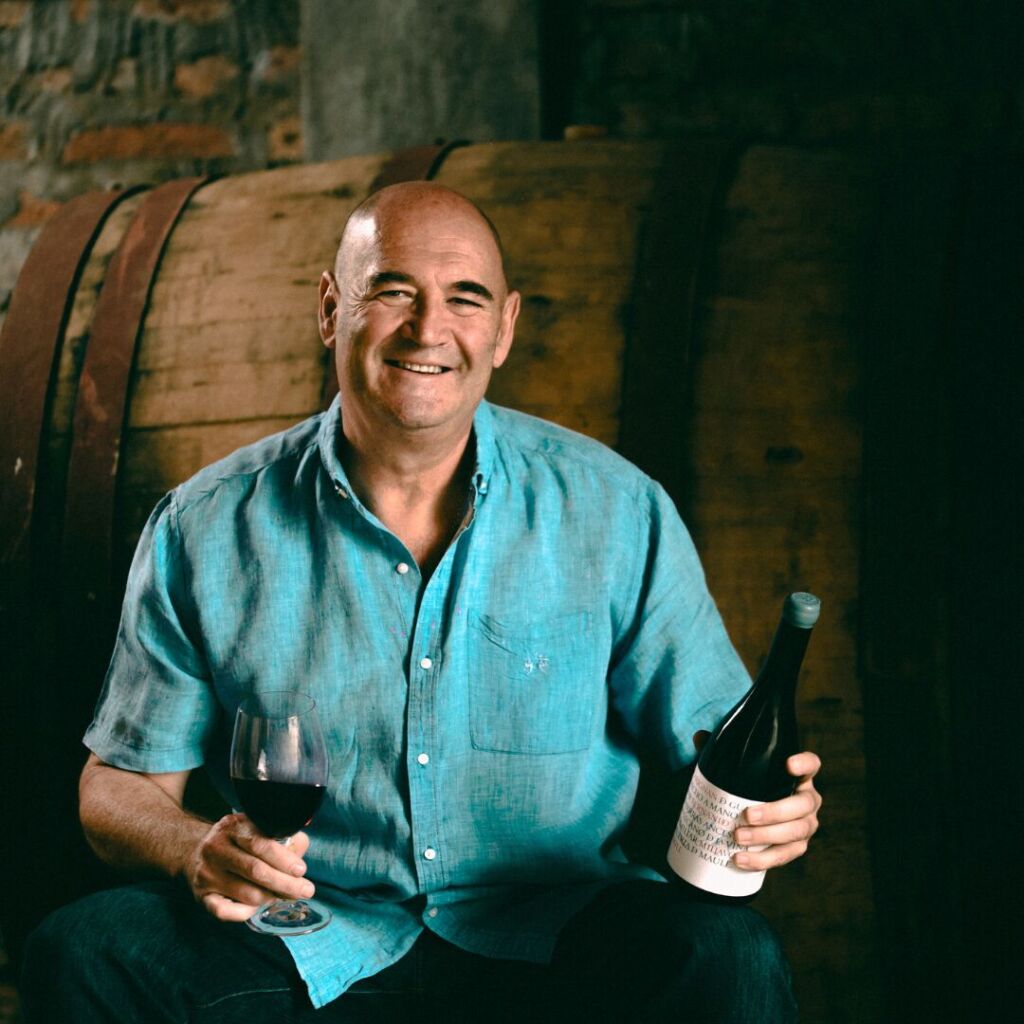
fernando Almeda Olle
Consultor Internacional de Vinos
Licenciado en Enología y Viticultura por la Universidad Rovira I Virgili (España) y diplomado en Gestión de Operaciones por la Pontificia Universidad Católica de Chile. También cuenta con un diplomado en Fisiología Vegetal de interés Enológico de la Universidad de Chile. Ha trabajado en el rescate de variedades patrimoniales y la producción en zonas extremas. Fue director técnico de Viña Miguel Torres Chile y jefe de Proyectos Especiales de Enología en Viña Torres España. Es consultor vitivinícola, miembro de la Cofradía del Mérito Vitivinícola de Chile, y ha recibido varios premios, incluyendo el Premio Nacional a la Innovación Vitivinícola Chilena.
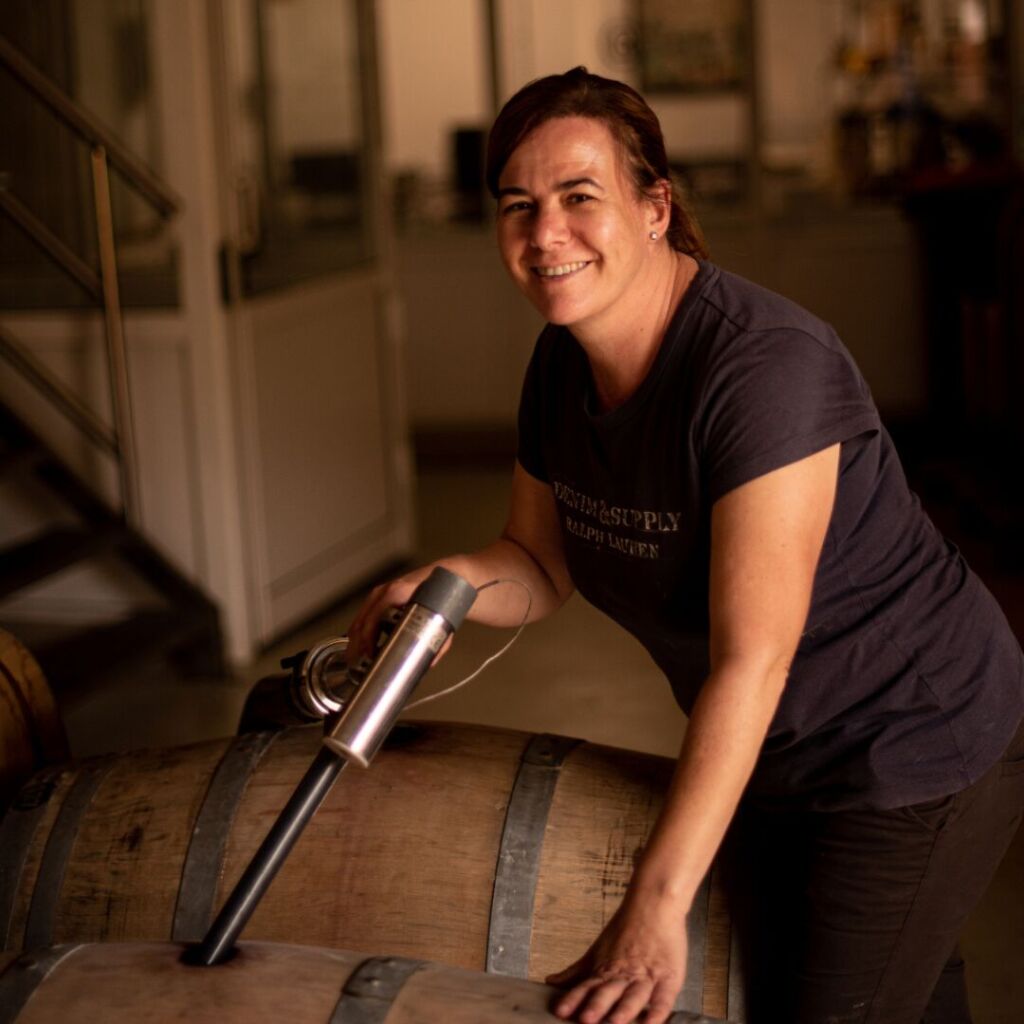
María Elena Batista Herrera
Responsable de Investigación y Desarrollo (I+D) de Bodegas Viñatigo
Doctora en Ciencias Químicas por la Universidad de La Laguna, con un Máster en Enología y Viticultura por la Escuela Técnica Superior de Ingenieros Agrónomos de Madrid. Responsable de Calidad, Procesos e I+D en Bodegas Viñátigo. Participación en proyectos como INIA Vino 1-48 y 1-028-C3-3 para el desarrollo y optimización del cultivo de variedades autóctonas canarias. Codirección de trabajos de final de Ingeniería Técnica Agrícola y participación en la investigación de vinificación en blanco con variedades autóctonas.
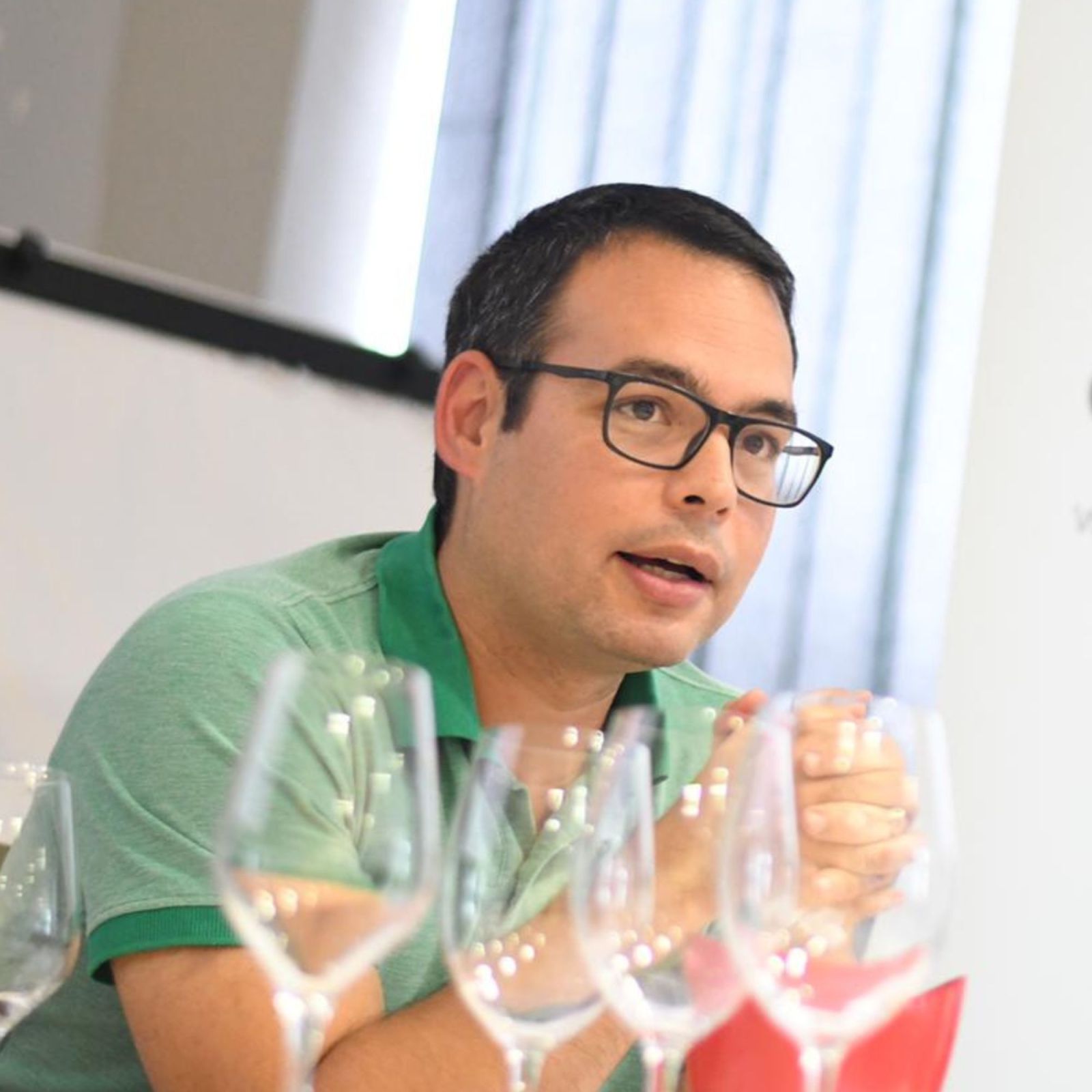
Jesús de las Heras roger
director de la cátedra de agroturismo y enoturismo de canarias del ICCA y de la ULL
Profesor e investigador del departamento de Ingeniería Química y Tecnología Farmacéutica de la Universidad de La Laguna. Director de la Cátedra de Agroturismo y Enoturismo de Canarias del ICCA y de la ULL, experto técnico de la Entidad Nacional de Acreditación (ENAC) para auditorías relacionadas con análisis de vino y bebidas. Desde el 2010 hasta 2023 ha ejercido como director técnico del área de vinos y Responsable de Calidad del Laboratorio Insular de Tenerife de donde es funcionario en excedencia, además de investigador de carrera del Cuerpo Superior de Investigaciones Agrarios de la Comunidad Autónoma de Canarias, en la Unidad de Laboratorios del Instituto Canario de Investigaciones Agrarias.
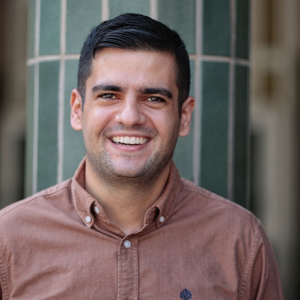
Abel López Díez
docente e investigador de la universidad de la laguna
Doctor en Geografía por la Universidad de La Laguna, Máster en Gestión y Planificación de Riesgos Naturales en la Universidad de Alicante y Especialista en Protección Civil y Emergencias por la Universidad de Valencia. Ha participado en numerosos cursos de formación de ámbito internacional organizados por entidades como la Universidad de La Laguna o el Centro de Formación Internacional de Naciones Unidas (ITCILO). Miembr de la cátedra universitaria Reducción del Riesgo de Desastres y Ciudades Resilientes de la Universidad de La Laguna donde ha desarrollado múltiples proyectos y artículos de investigación vinculados con temáticas como la adaptación al cambio climático, la planificación y gestión de emergencias y la evaluación local del riesgo. Además, en la actualidad forma parte del equipo de revisores del VI Informe del Panel Intergubernamental del Cambio Climático (IPCC).

Andrea Casquete bureba
project manager PTV
Biotecnóloga especializada en Enología y su Adaptación al Cambio Climático, actualmente project manager y responsable del departamento técnico y de las áreas de Viticultura, Sostenibilidad y Cambio Climático, Producto y Digitalización de la Asociación Plataforma Tecnológica del Vino (PTV).
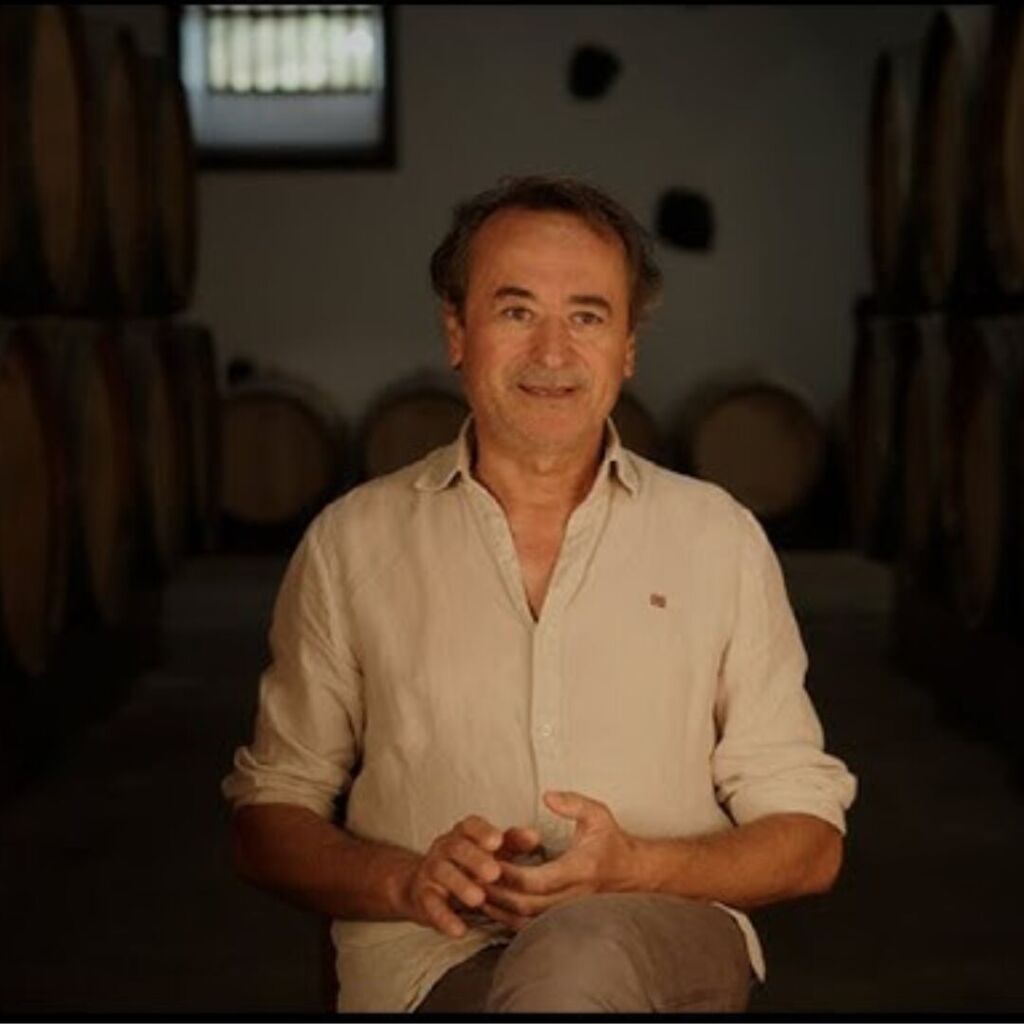
Ignacio Valdera Calvo
Socio y enólogo de Bodegas Bermejo
Bajo su dirección, Bodegas Bermejo ha consolidado su reputación como una de las productoras más representativas de la Denominación de Origen Lanzarote. Valdera se ha especializado en aprovechar las condiciones climáticas y geológicas extremas de Lanzarote para producir vinos frescos y con una identidad particular. La innovación en el manejo de viñedos en suelos difíciles y el respeto por las tradiciones locales han sido claves en su enfoque enológico. Además, ha sido una figura clave en la promoción de los vinos de la región, llevando a Bodegas Bermejo a obtener reconocimiento tanto a nivel nacional como internacional.

Xabier Kamio
Asesor enológico de Bodegas El Grifo
Xabier Kamio es un reconocido asesor enológico que colabora con Bodegas El Grifo, una de las bodegas más antiguas y prestigiosas de Lanzarote, fundada en 1775. Kamio ha sido clave en la creación de vinos que reflejan el carácter distintivo de Lanzarote, trabajando con variedades autóctonas como la Malvasía Volcánica, famosa por su frescura y mineralidad. A lo largo de su carrera, Kamio ha desarrollado un profundo conocimiento sobre el manejo de viñedos en suelos áridos y condiciones climáticas extremas, aspectos cruciales en la viticultura de Lanzarote.
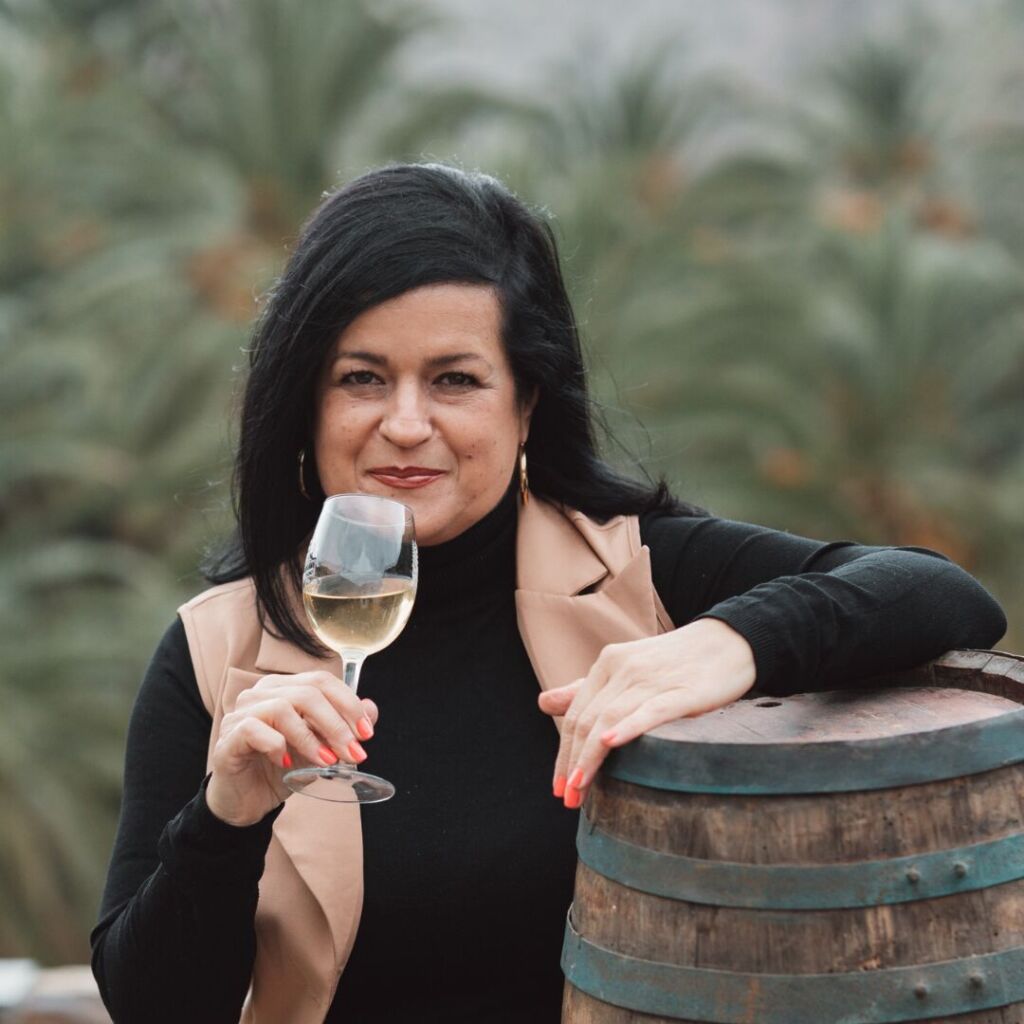
Nancy Melo Herrera
Gerente del Consejo Regulador de la DOP de Vinos La Gomera
Ingeniera Técnica Agrícola por la Universidad de La Laguna, con 30 años de experiencia en el sector primario. Especialista en análisis sensorial y caracterización de vinos. Presidenta del Consejo Regulador de la DOP Vinos La Gomera (2019-2024), donde actualmente es Directora Técnica y Gerente. Secretaria de AIDER La Gomera y de la Fundación Regional Alhóndiga de Tacoronte. Activa en concursos agroalimentarios, y premiada como Más Mujer Canarias Sector Primario en 2024.
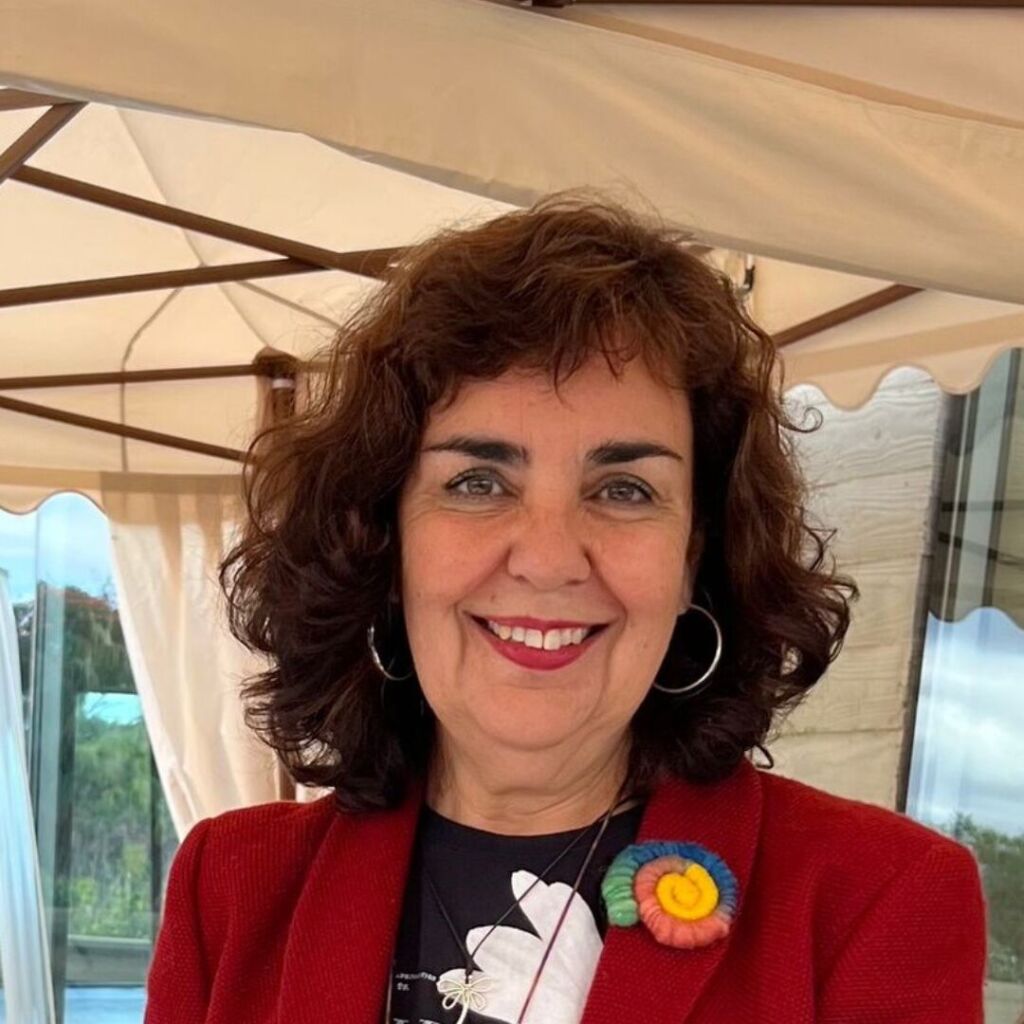
María del Carmen Carmen Jaizme Vega
Directora Científica del ICIA
Doctora en Ciencias Biológicas por la Universidad de La Laguna (1992) inició su carrera en 1982 como becaria de investigación en el Instituto Canario de Investigaciones Agrarias (ICIA). Desde 1986 ha trabajado como responsable de la investigación sobre microorganismos benéficos de la rizosfera, como los hongos micorrícicos arbusculares (MA). Fue Directora de la Unidad de Protección Vegetal (2007-2021) y actualmente es la Directora Científica del ICIA. Su investigación se centra en la salud de los agrosistemas y la recuperación de suelos. Ha publicado extensamente, coordinado proyectos y dirigido más de 90 trabajos académicos, además de impartir clases en varios másteres.

Alejandra S. Lazzaro Gabrielli
Colaboradora Técnica en el ICIA
Doctora en Biología Vegetal por la Universidad de La Laguna, ha trabajado en el ICIA y en el sector privado como Directora Técnica de Laboratorio y Coordinadora de Calidad. Desde 2019 hasta 2023 coordinó el Laboratorio de Sanidad Vegetal del Gobierno de Canarias y ahora es investigadora en el ICIA. Su investigación se centra en la interacción platanera-Fusarium y la recuperación de variedades de viña para paliar la erosión genética y crear material libre de virus. Ha trabajado en proyectos de transferencia tecnológica, docencia, divulgación científica, y cuenta con publicaciones en revistas de impacto y experiencia docente universitaria.
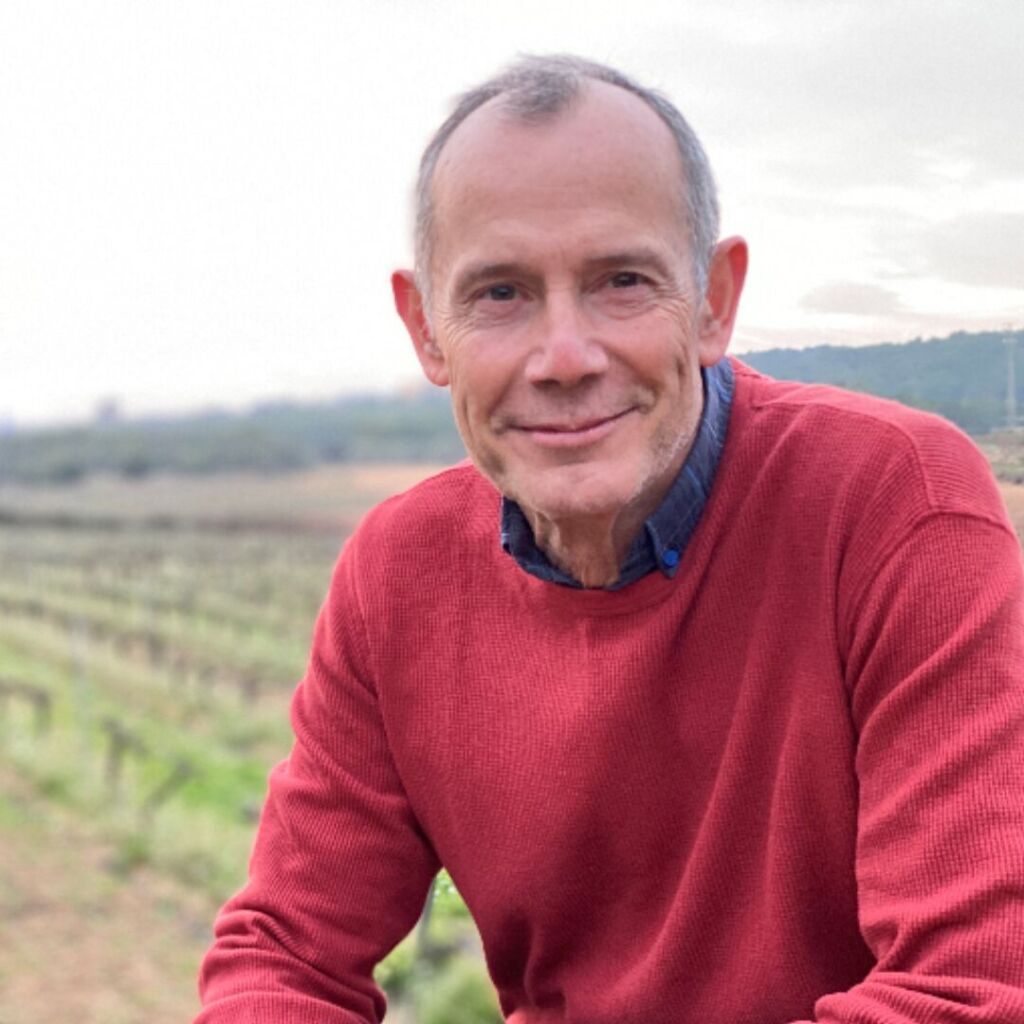
Enric Bartra Sebastian
Investigador del Instituto Catalán de la Viña y el Vino (INCAVI)
Doctor en Biología de la Universidad de Barcelona, Ingeniero Técnico Agrícola de la Universidad Politécnica de Cataluña, Docente en Viticultura y Oenología. Es investigador del Instituto Catalán de la Viña y el Vino (INCAVI) desde 1985. Los temas de investigación y transferencia en el que trabaja están dirigidos a las necesidades de las bodegas, los entornos internacionales de los mercados y las demandas de los consumidores.
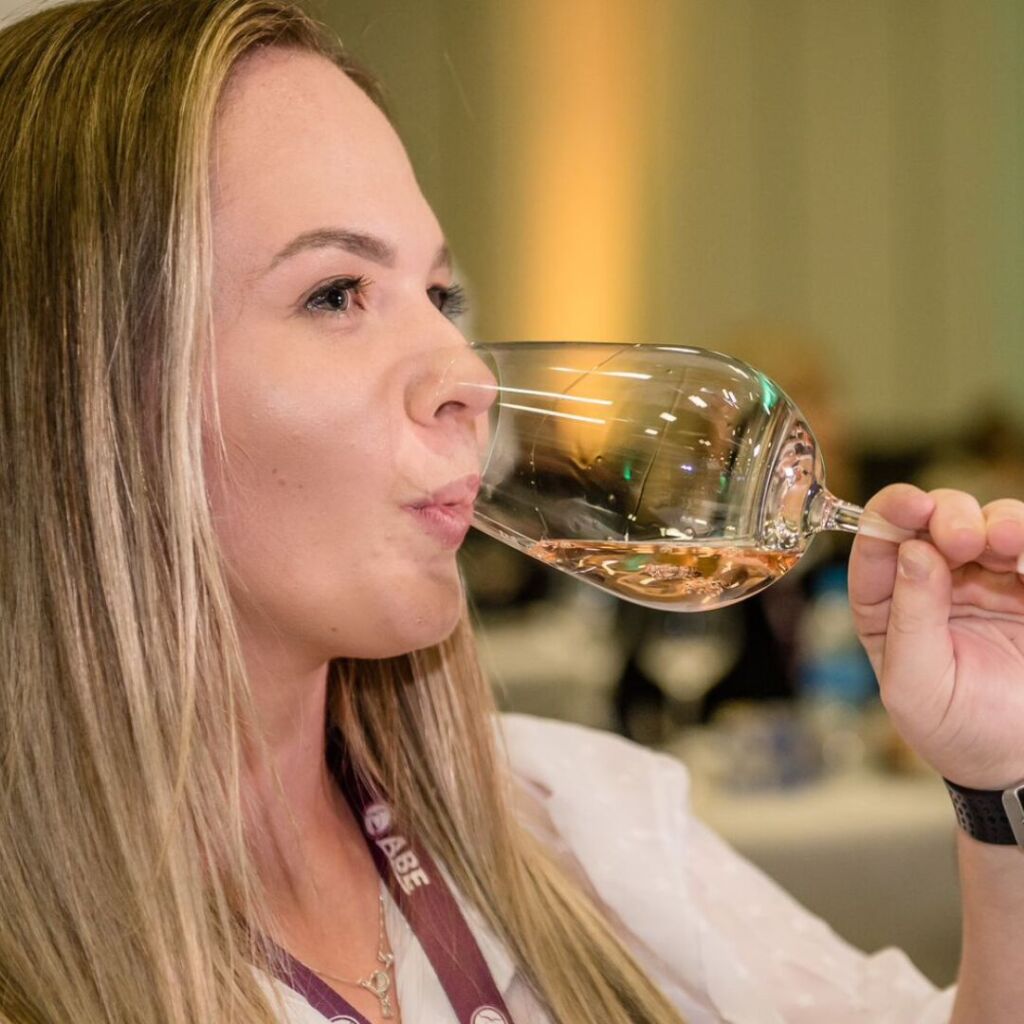
Allana Cappelli Decarli
Máster Profesional en Viticultura y Enología, en el IFRS - Campus bento gonçalves
Posee un curso técnico en Viticultura y Enología por el Instituto Federal do Rio Grande do Sul, una graduación en Viticultura y Enología también por el Instituto Federal do Rio Grande do Sul y una graduación en Comercio Exterior por Uninter. Actualmente, es estudiante de maestría en Viticultura y Enología en el Programa de Posgrado del Instituto Federal do Rio Grande do Sul, dedicando su investigación a la implementación y evaluación de prácticas sostenibles en viticultura. En el ámbito profesional, ocupa el cargo de enóloga y responsable técnica en la bodega Della Mastela - Vinhos de Família.
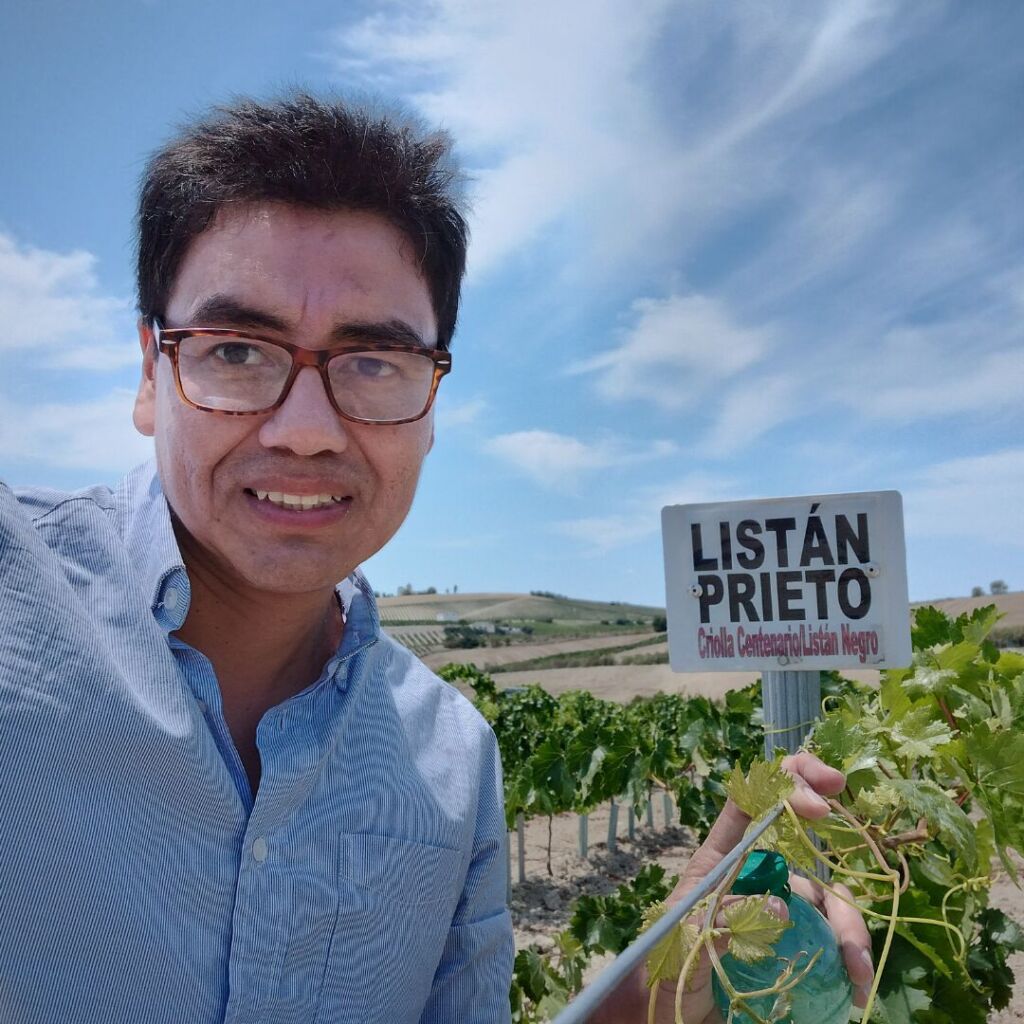
Karl Mendoza Solari
investigador asociado del Instituto de la Pequeña Producción Sustentable (IPPS-UNALM) Perú
Ingeniero Agrícola y Bachiller en Ingeniería Ambiental (Universidad Nacional Agraria La Molina, UNALM), con estudios de posgrado en Viticultura (Facultad de Ciencias Agrarias - Universidad Nacional de Cuyo,UNCuyo, Mendoza, Argentina) y Ampelografía (OIV, IMIDRA Madrid, España). Actualmente es investigador asociado del Instituto de la Pequeña Producción Sustentable (IPPS-UNALM) en caracterización ampelográfica de variedades de vid, agricultura ecológica, diseño agroindustrial, vitivinicultura y riego.
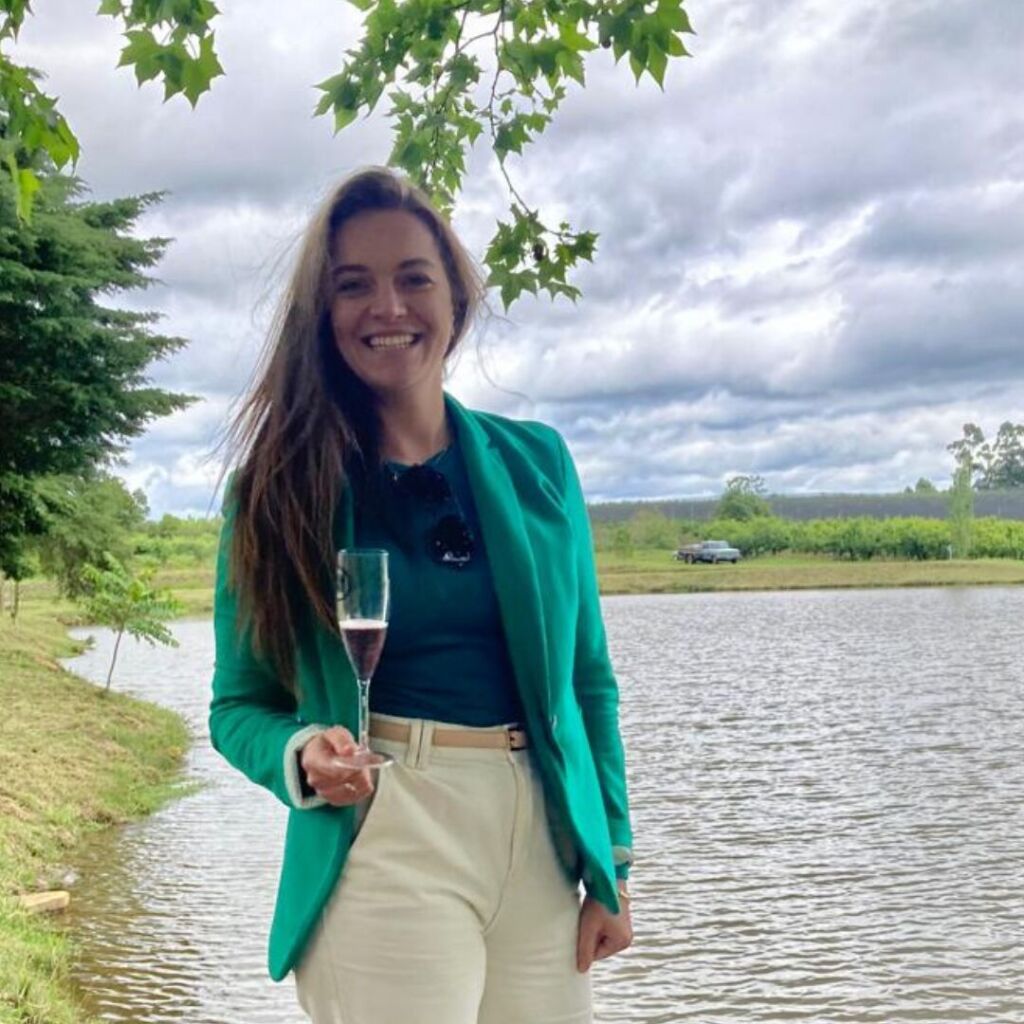
Juliana Toniolo Rossatto
Máster Profesional en Viticultura y Enología, en el IFRS - Campus bento gonçalves
Posee una licenciatura en Viticultura y Enología por el Instituto Federal de Rio Grande do Sul y una especialización en Viticultura, también por el Instituto Federal de Rio Grande do Sul. Sommelier Internacional por la Universidad de Caxias do Sul. Actualmente, es estudiante de maestría en Viticultura y Enología en el Programa de Posgrado del Instituto Federal de Rio Grande do Sul, dedicando su investigación al potencial de sostenibilidad en las Indicaciones Geográficas de vinos. Desde hace 7 años, es secretaria ejecutiva y enóloga de la Asociación de Productores de Vinos de Pinto Bandeira, que gestiona la Denominación de Origen Altos de Pinto Bandeira.

maría girón
CONSULTORA Y COMUNICADORA DEL SECTOR DEL VINO
Reconocida comunicadora y sumiller con una pasión inquebrantable por la gastronomía y el vino. Con más de 8 años de experiencia en el mundo del vino, se ha destacado como consultora de bodegas y empresas del sector, a la vez que utiliza su plataforma en Instagram para educar y acercar la cultura del vino.
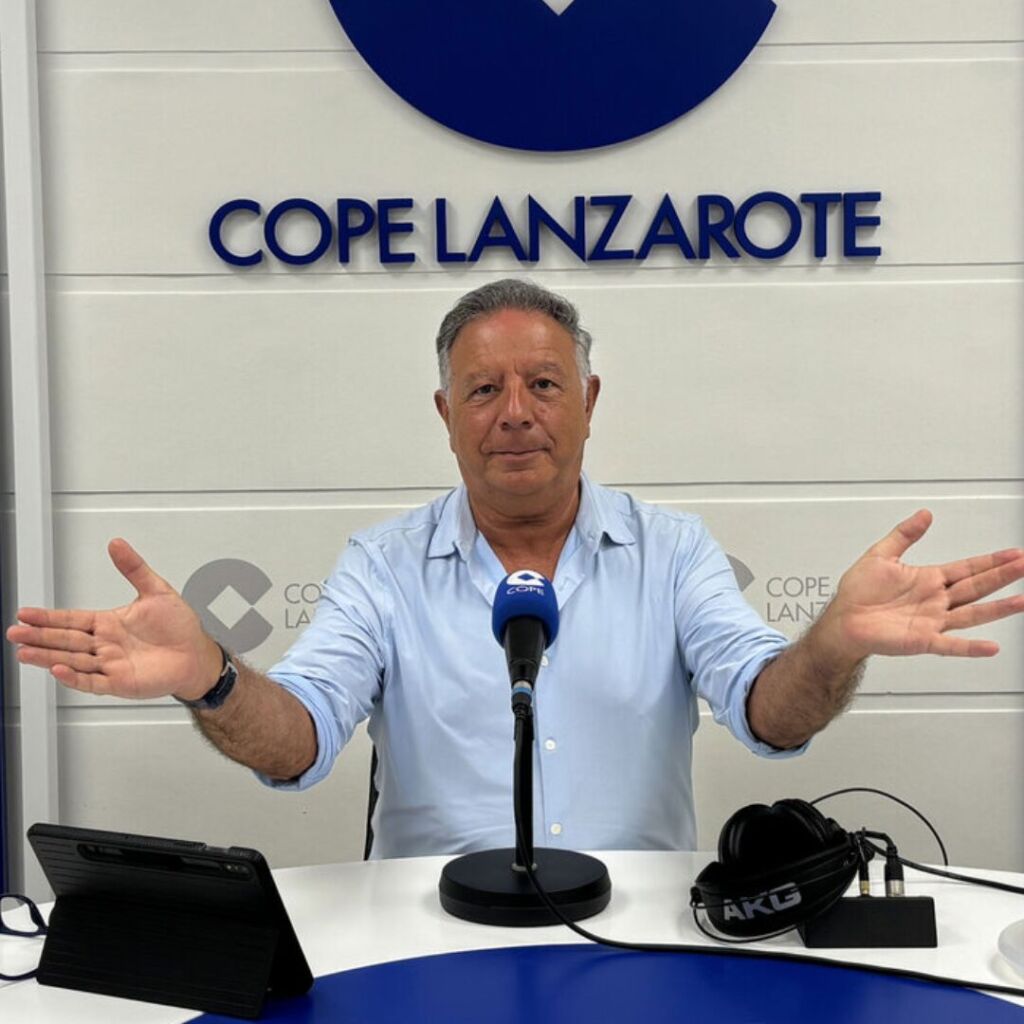
JAIME PUIG
PERIODISTA ESPECIALIZADO EN GASTRONOMÍA
Al frente de Herrera en COPE Lanzarote, este periodista activo desde 1986 es creador de contenidos y productor de eventos gastronómicos. Ha trabajado en medios como Antena 3 Radio, Cadena SER y lanzó Tele Volcán en Lanzarote. En 2006 fundó comerenlanzarote.com, un blog de gastronomía sobre Lanzarote y La Graciosa. Cofundador de GastroEvents y Beterrada Comunicación, organizando eventos como ArtEnyesque®. Es embajador de Cookpad, coautor de un libro sobre la cocina local y tiene un canal de cocina en YouTube con 15,000 suscriptores.
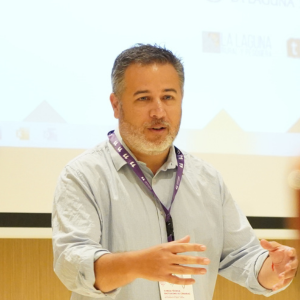
Gabriel Santos García
Subdirector de la cátedra de agroturismo y enoturismo de canarias del ICCA y de la ULL
Santos es Técnico en Servicios Vitivinícolas, vinculado a la organización y docencia en temáticas como el enoturismo, el turismo gastronómico y activo durante más de 19 años. Desde el 23 de mayo de 2019, es miembro del Consejo de Dirección de la Cátedra de Agroturismo y Enoturismo de Canarias, con el cargo de Subdirector, que combina en la actualidad con su propia consultaría especializada en la planificación y desarrollo de eventos, y de formación.
Wine tasting
Bodegas Participantes
Lanzarote: the vineyard of the impossible
Lanzarote is an island shaped by volcanoes, the wind, and the art of César Manrique. Among its fiery landscapes, La Geria emerges, where small walls of volcanic stone protect the vines from the air, aiming to adapt nature for the production of malvasía wine. To understand how this unexpected wine born from volcanic ashes is produced, visiting the oldest winery in the Canary Islands is essential.
Between 1730 and 1736, Lanzarote experienced the longest recorded eruption in the Canary Islands. The Mountains of Fire covered the most fertile area of the island in black, leaving an inhospitable terrain. The process of the so-called Timanfaya eruption began in the Caldera de los Cuervos and ended with the explosions of Montaña Colorada and Montaña de las Nueces, in the central southern part of Lanzarote. No one could have imagined then that the badlands would give way to a unique wine-growing environment where volcanic ash would help retain moisture in the crops. In it, a perfect succession of stone shelters protects the vines that sprout from crevices carved into the lapilli, demonstrating the power of nature and shaping one of the most unique agricultural fields in the world, where farmers ally with the rugged lands, the trade winds, and the scarce rains to produce wine.
The Protected Natural Landscape of La Geria extends between the towns of Tías, Masdache, and Yaiza, forming the Golden Mile of Lanzarote’s wineries. A place more fitting for another world that immerses the visitor in a calm as deep as its furrows.
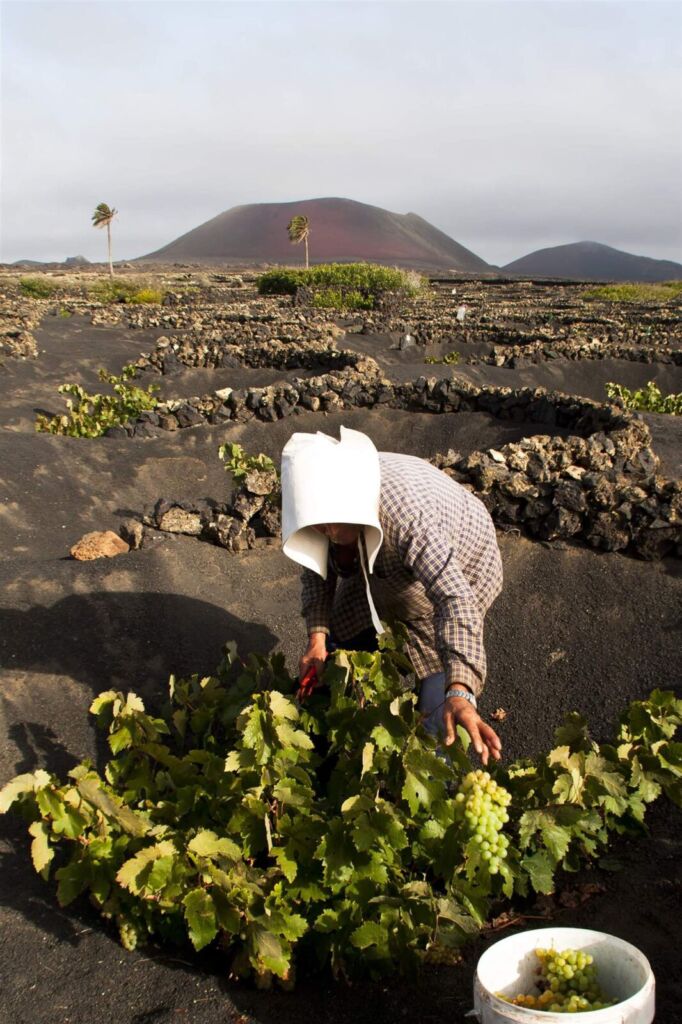
It was the peasants who, with their own hands or aided by camels as their only tool, began to dig holes to access the topsoil and thus be able to cultivate it. With a diameter of six meters and a depth of up to three meters, the holes are mostly surrounded by stones in a circular or crescent shape that serve as a shelter against the wind. The temperature of volcanic ash helps the grape increase its sugar levels, and as a result, its alcohol content.
Some furrows ascend the brown mountains, creating illusory balances. In them, cultivation has usually been carried out in a linear fashion for the past 30 years, although the hydrographic problems are greater. All the difficulties that these vineyards have overcome since their origins have driven the commitment of the local wineries to produce great wines. The powerful expanse of volcanic flows is interrupted by some white houses with green windows. On the other side, Timanfaya National Park continues the succession of otherworldly landscapes, and the sunsets leave wonderful images of camels resting after transporting tourists through the park. Camels that transitioned from agriculture to tourism, just like many families on the island.
Previous Editions
Sustainable initiatives require planning, monitoring, and assessment of knowledge. It is a constant process of evolution that requires continuous improvement. In this regard, the Chair of Agrotourism and Wine Tourism of the Canary Islands, part of the Canary Institute of Agro-food Quality and the University of La Laguna, along with Bodegas El Grifo, aims to analyze the reality of the Canary wine sector and the new challenges and opportunities that arise, both in terms of market and consumption as well as production, stemming from climate change, new social uses, and new legislation applicable to the sector and consumers during the First International Technical Days on Sustainable Viticulture, held in Lanzarote on November 3 and 4, 2023.
More Information: Aquí

